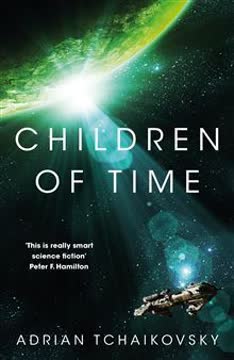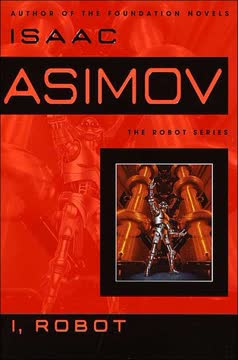Key Takeaways
1. Democracy's Transformation: From Trust to Mistrust
"Elections don't change anything," reads graffiti scrawled across a wall in the center of my hometown of Sofia, Bulgaria. "If elections changed something, they would be banned."
The erosion of trust in democratic institutions is a global phenomenon. Despite the increasing number of democracies worldwide, citizens are losing faith in the power of their vote to effect real change. This disillusionment is evident in:
- Declining voter turnout, especially among the poor, unemployed, and young
- Rise of protest and extreme parties
- Growing belief that powerful interests have captured democratic institutions
The paradox is that while democratic principles have universal appeal, trust in the components of democracy - parties, elections, parliaments, governments - is in serious decline. This shift reflects a broader transformation of democracy from a system of collective empowerment to one of individual rights without corresponding collective power.
2. The Paradox of Freedom: More Rights, Less Power
"Our rights are no longer secured by our collective power as voters but are subject to the logic of the financial market and the existing constitutional arrangements."
The market's growing influence on politics has fundamentally altered the relationship between citizens and their governments. This shift is characterized by:
- Economic decision-making being taken out of democratic politics
- Markets, not voters, deciding economic policies
- Freedoms protected by market logic rather than collective voter power
The result is a post-political democracy where governments depend on voter confidence, but the nature of this dependency has changed. Politics has been reduced to adjusting to market imperatives, leaving voters with the power to choose governments but not policies, especially economic ones.
3. The Digital Revolution: Empowering Citizens, Eroding Institutions
"You can tweet a revolution, but you can't tweet a transition."
The digital age has transformed democracy by:
- Enabling instant fact-checking and exposure of political scandals
- Facilitating mass mobilization for protests and political action
- Challenging traditional forms of political organization and leadership
However, this digital empowerment has also:
- Eroded the legitimacy of representative institutions
- Created a disconnect between online activism and sustained political engagement
- Failed to provide clear ideological alternatives or coherent political communities
The smartphone-wielding citizen symbolizes this new democratic condition: empowered to voice opinions and organize protests, but lacking the collective power and clear ideological vision of past political movements.
4. The Meritocratic Elite: Well-Educated but Mistrusted
"The new elites are self-confident because they are not only mobile but often refuse to see themselves as a part of a wider society."
The paradox of meritocracy lies in the increasing education and competence of elites coinciding with growing public mistrust. This phenomenon is driven by:
- The professionalization of politics and growing income/education gap between elites and public
- Elites' global mobility and perceived lack of commitment to local communities
- The shift from "rentier" elites to "working rich," challenging traditional notions of privilege
The result is a mercenary elite that is economically productive but socially disconnected, leading to resentment from a public that feels abandoned by its leaders. This disconnect undermines the social contract that historically justified inequality in democratic societies.
5. The Transparency Delusion: Information Overload vs. True Accountability
"Inundating people with information is a time-tested way to keep people uninformed."
The transparency movement, while well-intentioned, faces significant challenges:
- Assumption that information alone leads to action and accountability
- Risk of information overload obscuring important issues
- Potential for transparency to fuel conspiracy theories and paranoia
The push for transparency can paradoxically:
- Shift focus from moral competence to technical expertise
- Make public discourse more complicated and less accessible
- Replace representative democracy with mere citizen control of the executive
True accountability requires not just access to information, but the ability to interpret it meaningfully and act upon it effectively within democratic structures.
6. The Smartphone Citizen: Empowered yet Powerless
"The citizen with the smartphone doesn't confront the tough ideological choices his predecessors faced."
The modern citizen, armed with a smartphone, represents a new democratic paradigm:
- Increased ability to document abuses and spread information
- Enhanced capacity for fact-checking and real-time political engagement
- Power to mobilize protests and collective action quickly
However, this digital empowerment comes with limitations:
- Lack of clear ideological frameworks or political communities
- Difficulty in translating online activism into sustained political change
- Tendency towards performative rather than substantive political engagement
The smartphone citizen symbolizes both the potential and the limitations of digital democracy, capable of sparking revolutions but struggling to shape long-term political outcomes.
7. Restoring Trust: Beyond Transparency to Meaningful Participation
"Living in truth can't be reduced to having access to full information. It is the person daring to say the truth and not the truth itself that will ultimately bring change."
Rebuilding democratic trust requires more than just transparency:
- Recognizing the limits of information in changing political realities
- Focusing on creating meaningful avenues for citizen participation
- Rebuilding the connection between individual rights and collective power
Key steps might include:
- Strengthening local democratic institutions and community engagement
- Developing new models of economic decision-making that balance market forces with democratic will
- Fostering political education that emphasizes critical thinking and civic responsibility
The challenge is to move beyond the illusion of digital empowerment and transparency to create democratic structures that genuinely respond to and represent the will of the people.
Last updated:
Review Summary
Readers found "In Mistrust We Trust" thought-provoking and relevant, praising its insights on democracy's challenges in the digital age. Many appreciated Krastev's analysis of diminishing voter power, the impact of smartphones, and the paradox of transparency. Some noted the book's uneven writing style and lack of solutions, while others valued its provocative questions. Overall, reviewers recommended it as a stimulating read on contemporary political issues, despite its occasionally pessimistic tone.
Similar Books
Download PDF
Download EPUB
.epub digital book format is ideal for reading ebooks on phones, tablets, and e-readers.












